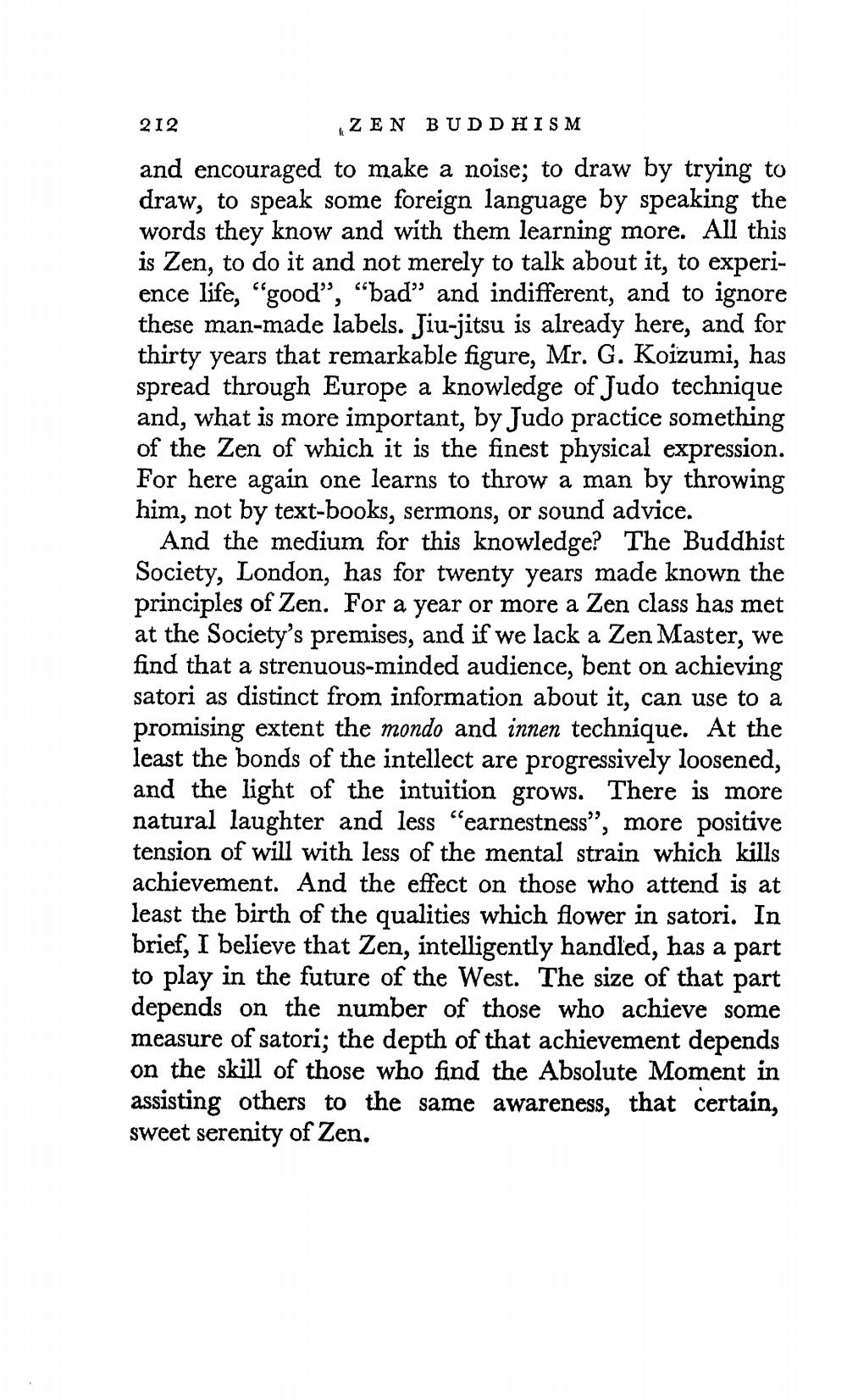________________
212
,ZEN BUDDHISM and encouraged to make a noise; to draw by trying to draw, to speak some foreign language by speaking the words they know and with them learning more. All this is Zen, to do it and not merely to talk about it, to experience life, "good", "bad" and indifferent, and to ignore these man-made labels. Jiu-jitsu is already here, and for thirty years that remarkable figure, Mr. G. Koizumi, has spread through Europe a knowledge of Judo technique and, what is more important, by Judo practice something of the Zen of which it is the finest physical expression. For here again one learns to throw a man by throwing him, not by text-books, sermons, or sound advice.
And the medium for this knowledge? The Buddhist Society, London, has for twenty years made known the principles of Zen. For a year or more a Zen class has met at the Society's premises, and if we lack a Zen Master, we find that a strenuous-minded audience, bent on achieving satori as distinct from information about it, can use to a promising extent the mondo and innen technique. At the least the bonds of the intellect are progressively loosened, and the light of the intuition grows. There is more natural laughter and less earnestness”, more positive tension of will with less of the mental strain which kills achievement. And the effect on those who attend is at least the birth of the qualities which flower in satori. In brief, I believe that Zen, intelligently handled, has a part to play in the future of the West. The size of that part depends on the number of those who achieve some measure of satori; the depth of that achievement depends on the skill of those who find the Absolute Moment in assisting others to the same awareness, that certain, sweet serenity of Zen.




